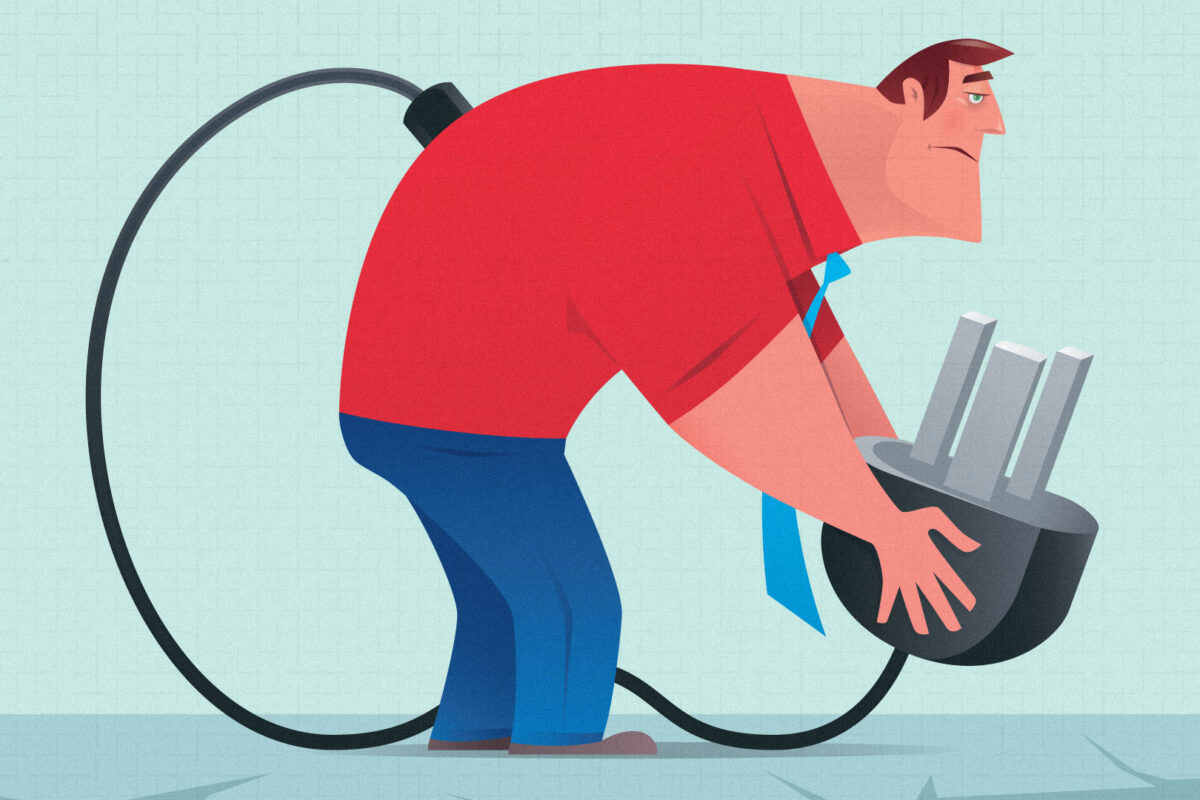5 Signs a Potential Employee Will Drain Your Team of Precious Energy, Creativity, and Joy
Some gadgets come with batteries and some don’t. If I told you it’s the same with people, what kind would you like to work with: those with or without batteries?
I picked up this metaphor from an episode of Dan Sullivan’s 10XTalk Podcast. Dan said he basically divides everyone into one of two categories:
- Those that have their own energy source (those with batteries)
- Those that are dependent on others for their energy (those without batteries)

Some may not like it, but based on a few decades working in both entrepreneurial and corporate settings, I’d say the metaphor is spot-on.
Shortly after I listened to this episode, Gail mentioned a person we both know. He’s got a lot of problems but could really use a job, she said. Would I consider hiring him? “No,” I said, remembering Dan’s metaphor. “I can’t hire him. He doesn’t come with batteries.”
You probably know what that’s like. Almost every work environment has a couple (or more) people who drain the team members around them. Not my company.
I am willing to help people without batteries, but I am not willing to hire them. I want everyone in my organization to have their own battery pack. If they don’t, they just deplete everyone else. I want my people working to grow my business and reach their potential—not wasting energy making up for someone’s character deficit.
Here are five signs a potential employee will drain your team of precious energy, creativity, and joy:
- They enjoy and create drama. Some people get personal significance from the dramas of life, and it doesn’t matter if it’s real or imaginary. If need be, they’ll just create and stir up trouble to feel better about themselves. Nobody leading a successful organization has time or energy for that.
- They gossip and backbite. Teams succeed because everyone upholds each other. Gossiping and backbiting undermine the integrity of the team, and drain resources on managing unnecessary relational troubles.
-
They complain about everything. Negativity is to an organization what cancer is to the human body. There are times when critique, correction, and dissent are good and necessary, but constant cynicism, discontentedness, and grumbling will kill momentum faster than anything.
-
They need constant supervision. People with batteries included are self-starting and self-directing. People without batteries need others to get them started and keep them going. If you hire people like this, you’ll spend all your time managing marginal producers instead of leading your organization.
-
They won’t accept responsibility. Healthy people take accountability for their actions, and healthy teams require accountability to function and thrive. But people without batteries try to avoid responsibility for results. They won’t make commitments up front, or own the outcomes at the end.
We just finished a major promotion for Platform University. To pull it off took several weeks of focused effort by our team, including days we were practically dizzy with the effort.

We succeeded in hitting our goals because everyone on the team comes with their own batteries. They are energetic, optimistic, and committed to each other and to winning together.
After a major push like this one, we’re all extremely tired—and still smiling. But if these five signs were flashing in the middle of the promotion, I’m convinced we wouldn’t have succeeded at all, let alone with smiles on our faces.
As you’re evaluating potential employees and checking references, these are the kinds of things you have to discover for yourself. If these signs manifest in the trial period—say, the first ninety days—do yourself and your team and favor. Show Mr. No Batteries the door.
If you were a bank loan officer, you wouldn’t approve a loan for someone who couldn’t make the payments, would you? The fact that he’s hard up means he needs help, not a loan. Same with hiring.
Helping people with problems is charity, not good business. And we cannot afford to confuse the two.
Disclosure of Material Connection: Some of the links in the post above are “affiliate links.” This means if you click on the link and purchase the item, we will receive an affiliate commission. Regardless, we only recommend products or services we use and believe will add value to our readers. We are disclosing this in accordance with the Federal Trade Commission’s 16 CFR, Part 255: “Guides Concerning the Use of Endorsements and Testimonials in Advertising.









